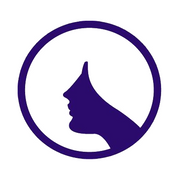What Are Common Symptoms of Bladder Control Issues?

The loss of bladder control, known as urinary incontinence, is a common issue as women age. But it isn’t an inevitable aspect of aging. If you’re wondering whether you could be experiencing this condition, discover some common symptoms below to prepare for an informed conversation with your women’s care provider.
What Are the Symptoms of Bladder Control Problems?
The inability to control bladder doesn’t always follow a precise pattern. You may notice urine leakage during certain activities, such as coughing, lifting, bending down, or working out. Some women also experience a sudden need to urinate right away and may be unable to reach a bathroom in time. For others, urine can leak without any warning.
 Other bladder issues can accompany incontinence. Difficulty producing a urine stream, having to urinate frequently, and pain during urination can also manifest, which suggest underlying bladder issues that need to be addressed by a professional. Continuing to urinate even after you feel you’ve finished, straining to urinate, and waking up to urinate are also symptoms. Should you notice blood in your urine, call your provider right away, as this could indicate an infection.
Other bladder issues can accompany incontinence. Difficulty producing a urine stream, having to urinate frequently, and pain during urination can also manifest, which suggest underlying bladder issues that need to be addressed by a professional. Continuing to urinate even after you feel you’ve finished, straining to urinate, and waking up to urinate are also symptoms. Should you notice blood in your urine, call your provider right away, as this could indicate an infection.
What Causes These Symptoms?
Factors like pregnancy, childbirth, and menopause can lead to weakened pelvic floor muscles, which may make it difficult for the bladder to retain urine. Issues such as bladder infections and conditions that affect nerves and muscles, such as diabetes, can also contribute to bladder control problems. The treatment for urinary incontinence will depend on its root cause, which can be determined by a women’s care provider.
If you’re experiencing bladder control issues, consult the caring team at the Women’s Clinic of Lincoln PC. These women’s health providers provide a range of in-office procedures to diagnose the cause of urinary incontinence as well as Botox® as a treatment option. Find out more about their services online, or call (402) 434-3370 to schedule an appointment.
About the Business
Have a question? Ask the experts!
Send your question

